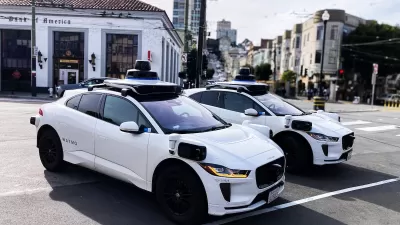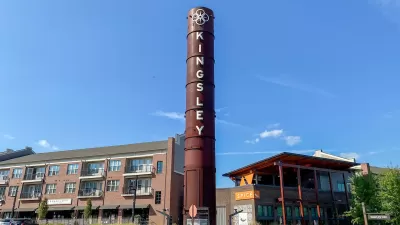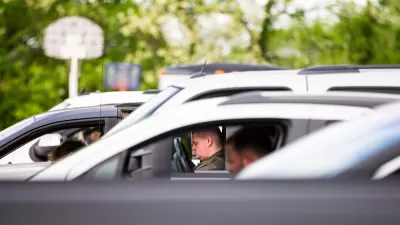Low-density suburbs are on their way out, and the suburbs of the future will better address the present-day needs of the people living in them.

Duo Dickinson considers suburbia’s past and the changes on the horizon. "Life in suburbia requires a car for almost every adult residing in each home, who drives to work, drives to shop, and drives to find entertainment or meet up with friends. And yet this is seen as the 'norm' by most Americans."
The growth of suburbia was fueled largely by the expansion of the highway system and automobile use, notes Dickinson. But now low-density suburban developments are not accommodating more recent social and cultural shifts and the increasing need for affordable housing.
Density is the new norm, says Dickinson, where land use and development are more sustainable, transit is accessible, and people can afford to buy homes. "The old suburban zoning almost willfully separated 'home' from every other aspect of life: working, shopping, entertainment. It is an anachronism. The future of suburbia is shifting to a place that might end up returning us to the 19th century model: fewer cars, more buildings and people per acre."
FULL STORY: The Invented Reality of Suburbia Is Not the Norm

Planetizen Federal Action Tracker
A weekly monitor of how Trump’s orders and actions are impacting planners and planning in America.

Maui's Vacation Rental Debate Turns Ugly
Verbal attacks, misinformation campaigns and fistfights plague a high-stakes debate to convert thousands of vacation rentals into long-term housing.

Restaurant Patios Were a Pandemic Win — Why Were They so Hard to Keep?
Social distancing requirements and changes in travel patterns prompted cities to pilot new uses for street and sidewalk space. Then it got complicated.

In California Battle of Housing vs. Environment, Housing Just Won
A new state law significantly limits the power of CEQA, an environmental review law that served as a powerful tool for blocking new development.

Boulder Eliminates Parking Minimums Citywide
Officials estimate the cost of building a single underground parking space at up to $100,000.

Orange County, Florida Adopts Largest US “Sprawl Repair” Code
The ‘Orange Code’ seeks to rectify decades of sprawl-inducing, car-oriented development.
Urban Design for Planners 1: Software Tools
This six-course series explores essential urban design concepts using open source software and equips planners with the tools they need to participate fully in the urban design process.
Planning for Universal Design
Learn the tools for implementing Universal Design in planning regulations.
Heyer Gruel & Associates PA
JM Goldson LLC
Custer County Colorado
City of Camden Redevelopment Agency
City of Astoria
Transportation Research & Education Center (TREC) at Portland State University
Jefferson Parish Government
Camden Redevelopment Agency
City of Claremont





























